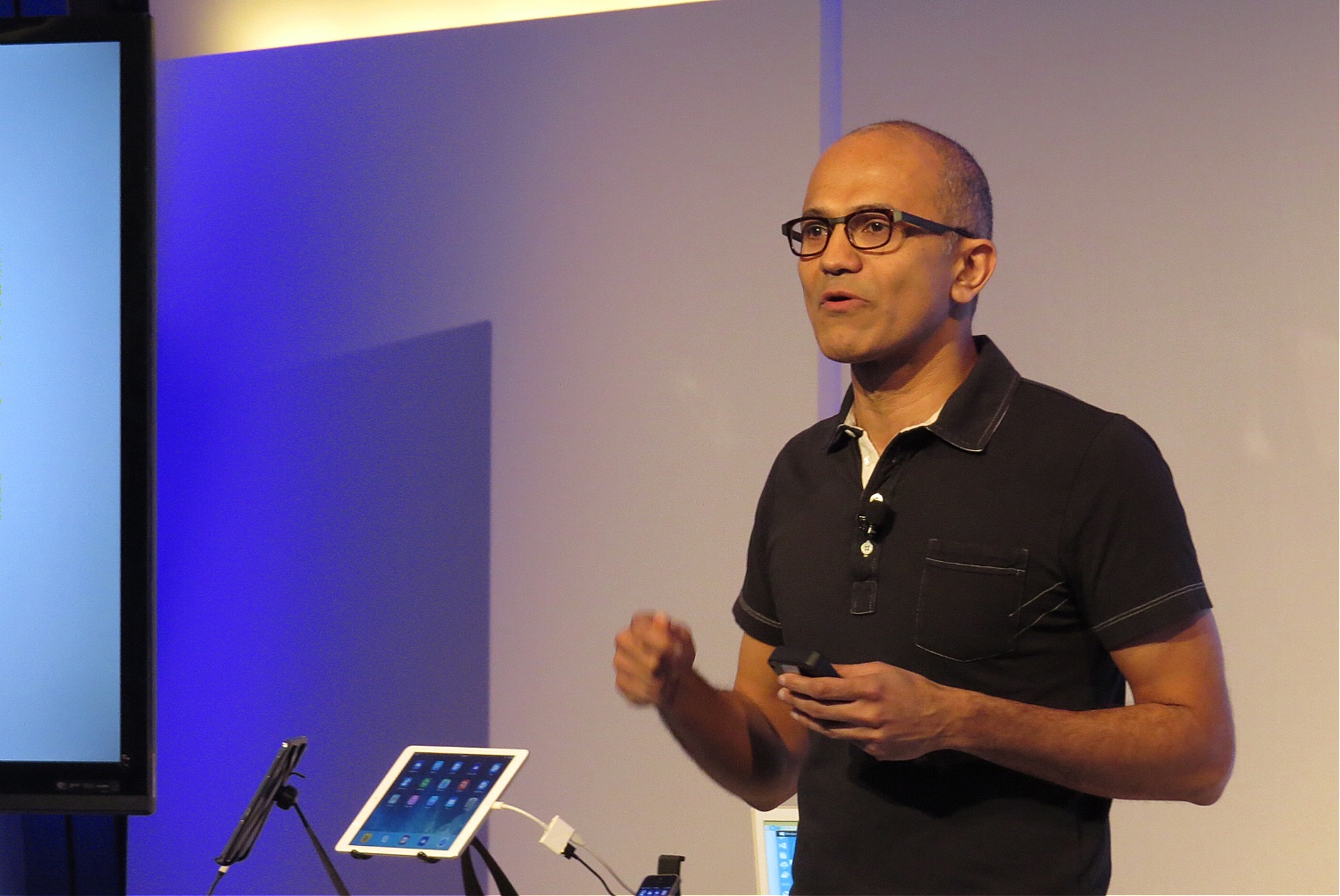
In January 2012, Steve Ballmer insisted that “nothing is more important at Microsoft than Windows.” The company was in the middle of re-imagining its software — not just on laptops and desktops, but as the eventual centerpiece of a unified Windows platform, running on every screen imaginable.
What a difference two years and a change in leadership makes. On Thursday morning, Microsoft CEO Satya Nadella revealed a much different vision compared to that of his predecessor, one that emphasizes productivity regardless of the computing platform. Although Windows will still play a role in Microsoft’s strategy, it’s no longer the focus. Nadella’s memo to employees doesn’t even mention Windows until the 23rd paragraph.
Put another way, Nadella is doing what Ballmer never could: letting go of Windows as the center of Microsoft’s universe. Instead, Microsoft will be satisfied if people are using services like Office 365, Skype, OneDrive and Bing, whether they’re on an iPhone, Android device or Windows PC.
Even prior to Nadella’s memo, signs of this new mentality had started to bubble up. Microsoft finally released Office for iPad in March and is working on an Android tablet version that will reportedly precede the touch-optimized version for Windows. Also in March, Microsoft launched an Enterprise Mobility Suite that lets IT pros manage employees’ iOS, Android and Windows devices.
But until now, it hasn’t been clear what the overarching strategy was going to be. In a world where people are increasingly favoring iOS and Android devices, what role does Microsoft see for Windows?
In the memo, Nadella said Windows and devices like the Surface tablet will “set the bar for productivity experiences.” He committed to making Windows the best operating system for businesses — a hint, perhaps, at further walkbacks of the radically-different Windows 8 — and talked about building new hardware categories to meet those goals.
It’s a subtle shift from the “devices and services” mantra that Ballmer espoused, and that Nadella made a point of discontinuing in his memo. Instead of casting hardware as half of the business, Nadella sees devices like Surface as just another way to serve the higher purpose of “getting stuff done.”
In a way, the newfound love for productivity is just Microsoft embracing what it has always done best. Partly, that means focusing on stereotypical spreadsheet and document editing, but it also means expanding the definition of productivity to things like painting, writing poetry, running city infrastructure and fighting disease. Nadella’s goal is to make these things possible through cloud services or through unique hardware like Surface. (Again, “devices and services” play a role, but they aren’t the goal unto themselves.)
This change in direction does leave some lingering questions. While Nadella said Microsoft is still committed to Xbox gaming, it now seems like a footnote in the context of everything else. (I’ve written some more thoughts about his elsewhere, and so has my TIME colleague Matt Peckham.)
I also wonder what will become of media services like Xbox Music and Xbox Video. Building competitive, cross-platform media services is hard work, and Microsoft’s home-grown services have never been particularly popular, so maybe it’s time to move on and seek partnerships.
On that note, Nadella is promising lots of big changes to come. “Organizations will change. Mergers and acquisitions will occur. Job responsibilities will evolve. New partnerships will be formed. Tired traditions will be questioned,” he said.
With that last line in particular, it’s hard to believe he was referring to anything but the importance of Windows above all else.
More Must-Reads From TIME
- The 100 Most Influential People of 2024
- Coco Gauff Is Playing for Herself Now
- Scenes From Pro-Palestinian Encampments Across U.S. Universities
- 6 Compliments That Land Every Time
- If You're Dating Right Now , You're Brave: Column
- The AI That Could Heal a Divided Internet
- Fallout Is a Brilliant Model for the Future of Video Game Adaptations
- Want Weekly Recs on What to Watch, Read, and More? Sign Up for Worth Your Time
Contact us at letters@time.com